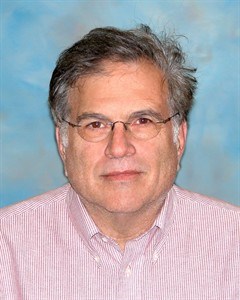
This undated handout photo shows Jeffrey Derevensky, co-director of the International Centre for Youth Gambling Problems and High-Risk Behaviors at McGill University. He's the author of "Teen Gambling: Understanding a Growing Epidemic." THE CANADIAN PRESS/HO
July 10, 2012 - 2:09 PM
TORONTO - Countless people flock to casinos, card tables and lottery kiosks, lured by the prospect of victory and pocketing a windfall. But a leading youth gambling expert says games of chance are anything but child's play.
"This is an adult activity," said Jeffrey Derevensky, co-director of the International Centre for Youth Gambling Problems and High-Risk Behaviors at McGill University.
"When they become adults and they can do it in a responsible way — meaning set and maintain both time and money limits — then that's OK. But this is not a child behaviour."
The McGill centre partnered with the U.S-based National Council on Problem Gambling for a campaign urging gift-givers to nix lottery tickets and scratch cards as holiday presents for minors.
Campaign participants included lottery organizations in British Columbia, Alberta, Saskatchewan, Manitoba, Ontario, Quebec and Nova Scotia, several U.S. states, and countries including Austria and Sweden. Derevensky said they plan to bring back the initiative again this year.
But youngsters are hardly immune to the lure of indulging in games of chance — some to the extent where gambling becomes problematic.
A study by the Centre for Addiction and Mental Health released in 2010 found that 29,000 middle and high school students in Ontario reported behaviours linked with problem gambling.
Nearly half of the students in Grades 7 to 12 reported participating in at least one form of gambling, while almost three per cent showed signs of a gambling problem. The most commonly reported activities were betting on card games and buying lottery tickets.
The Canadian Paediatric Society released a position statement in May recommending health-care providers screen for gambling behaviours and to help school boards adopt and enforce no-gambling policies.
Governments are advised to develop strategies to support youth and families, and to assess the potential impact of gambling offerings on youth prior to licensing them.
Derevensky has been asked to focus on Internet gambling and the implications for youth when he addresses the National Conference on Problem Gambling taking place this Friday and Saturday in Milwaukee. He is also author of "Teen Gambling: Understanding a Growing Epidemic" aimed at offering strategies to prevent and treat youth with gambling problems.
The McGill professor said online gambling is the fast-growing segment of the industry — notably among adolescents and young adults. Online poker is particularly popular among kids, and that there are play-for-fun sites where they can practise.
While some may see little harm in allowing kids to engage in such play in an already gaming-crazed culture, Derevensky said it can pave the way to potentially more problematic and costly habits.
"You're playing for points or you're playing for fictitious money and you're winning thousands of thousands of dollars, the natural inclination is for us to say, `Gee, imagine had I only been playing for real money,'" he said. "And we have a number of ... parents who've told us that their children have stolen their credit cards and used them to play online."
Aldo I., public relations chair for the Greater Toronto Area chapter of Gamblers Anonymous (he did not provide his last name), said beyond online gaming, youngsters are also drawn to sports betting.
"Once every so often we get these young people coming into our room with a horror story when they come to Gamblers Anonymous for the first time," he said.
Aldo himself was a compulsive gambler who was initially drawn to the slots.
"It was the excitement, the lights, the flicker, the sounds — and then, people were winning. I was winning. Two thousand, 3,000, 10,000, `Wow, look how easy this is.' And it just captures you.
"You think you're going to win more, you're going to go again. And then you start to achieve with the phantom idea that you're going to recuperate your losses which will never, ever, ever happen.
He's concerned about the lengths youngsters may go to in an effort to feed their addiction.
"It leads to other terrible things like selling drugs, buying other stuff to generate money. They get into illegal things. Rob(bing), doing home invasions. The addiction makes you do other things to get money."
Derevensky said teens gamble for the same reasons as adults: risk, enjoyment, the adrenalin rush, and making money.
Among the warning signs: lying about activities; unexplained absences from school; behavioural or attitude changes, such as mood swings, and difficulties at school, like falling grades, a loss of interest and poor work performance.
The McGill centre also said parents should be aware if teens have familiarity with online gambling sites, engage in discussions about gambling, use gambling lingo or show interest in conversations or TV shows centred on gambling.
Derevensky said teens can have a gambling problem which can be as severe and devastating as other addictive behaviours, whether it be drugs, alcohol or cigarettes.
Adults should keep watch for items or money that go missing or are unaccounted for, or evidence of gambling around the home, such as lottery tickets or books on learning how to play poker, he noted.
Derevensky said part of the reason why parents don't sound the alarm with respect to gambling stems from kids not being perceived as having a problem and gambling behaviour itself becoming normalized.
"We discuss as parents issues around drug abuse or drug use... around alcohol use, we talk about unprotected sex. But very few parents talk about gambling."
———
Online:
International Centre for Youth Gambling Problems and High-Risk Behaviors: www.youthgambling.com
Gamblers Anonymous: http://www.gamblersanonymous.org/ga/
News from © The Canadian Press, 2012